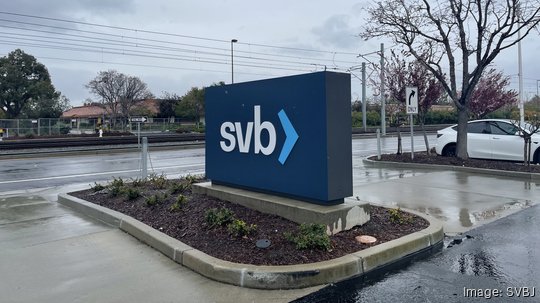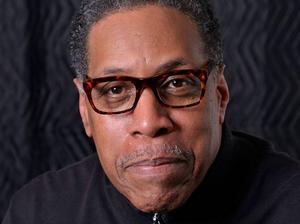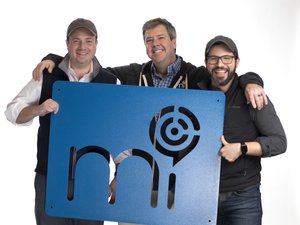
Though the federal government is set to cover all of Silicon Valley Bank's (SVB) deposits, the past week has been fraught with distress and uncertainty for the startups that were clients of the organization.
Founded 40 years ago, SVB serviced a huge share of VC-backed U.S. tech startups. And as American Inno reported, founders and investors throughout the nation were scrambling to make sense of an unprecedented situation: a lightning-fast bank run that dismantled a top-20 bank in the U.S. and the prospect of companies unable to make payroll.
At SXSW in Austin, founders and VCs walked off stage in the middle of presentations as news broke. In the Bay area, founder David Johnson was unable to access funding for his biotech startup, just four days after receiving it. And in Boston, Oriana Papin-Zoghbi, the co-founder of the startup AOA Dx, spent the weekend frantically canceling subscriptions, co-working space, and other expenses that were automatically linked to the firm's SVB account, in order to keep every cent possible to cover payroll.
“I am permanently scarred from this,” Papin-Zoghbi told Boston Inno, Memphis Inno’s sister publication. “My world has been disrupted. … Friday was, I think, the worst day I’ve ever lived on this planet.”
'The silver lining'
But while Papin-Zoghbi and entrepreneurs throughout the nation frantically tried to keep their fledgling businesses from being trampled in the SVB aftermath, most Memphis-based startups were largely unaffected by SVB’s failure.
“The [local] silver lining on this one was that Silicon Valley Bank has not really mined the Memphis territory,” said Jan Bouten, a partner with local VC firm Innova, which is also a VC partner of Epicenter. “There's no local representative or anything like that. They’ve not really been doing business development in the Memphis area.”
And this, he believes, is “both good and bad,” depending on how you look at it.
On one hand, the bulk of local startups were fortunate not to be as affected by the severe ramifications that SVB’s failure posed. But at the same time, the bank’s lack of a notable presence in the Memphis area is emblematic of a recurring theme: the bountiful funding of Silicon Valley and the West Coast has often felt out of reach to entrepreneurs in the local startup ecosystem.
“We're still overlooked by many, obviously,” Bouten said.
'A very high-quality market'
But this is a trend he thinks is changing. And the local startup scene, he believes, is “on the cusp” of a significant increase in prominence and more access to West Coast capital.
Though it’s smaller than the ones in some places, the Memphis startup ecosystem is growing and home to young businesses that have the potential to become larger, nationally known companies.
For example, SweetBio took its bioengineered wound care product to market in the new year and swiftly sold all 1,000 units in its inventory. Bite Ninja — which provides cloud labor to restaurants — is in discussions with some of the largest quick-service restaurant chains in the U.S. And SOMAVAC Medical Solutions has expanded into Charlotte and been issued a U.S. patent for a second device.
The COVID-19 pandemic also caused some VCs to make investments without ever meeting companies’ leaders in-person, which Bouten said “made the world a lot smaller” and gives local startups “a better shot at connecting with them.” And the high-profile Alchemist Accelerator’s decision to place its second U.S. location in Memphis could strengthen ties to the West Coast.
“Everybody knows Alchemist in Silicon Valley,” Bouten explained.
And once more investors do start paying closer attention to Memphis’ startup scene, he asserted, they’ll be impressed by what they find.
“I believe, firmly, that the companies that we have are as strong as anywhere else,” he said. “And because of the lack of capital, they're scrappier and do a lot more with less. It's a very high-quality market and once it gets discovered, I think we'll see a lot of people come look at what we have."









